Covid: Public health directors reflect on a year on the front line
- Published
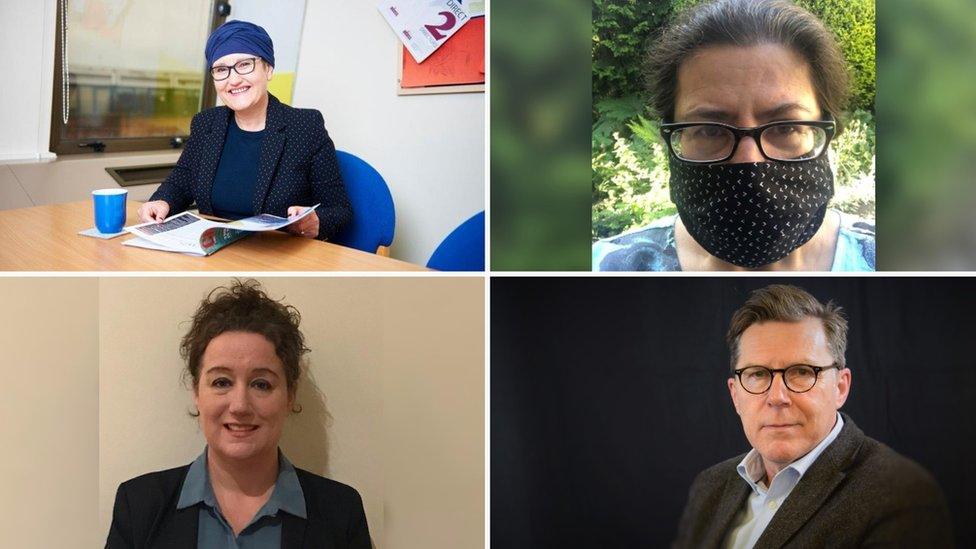
England's directors of public health have become familiar faces since March 2020
As the UK marks 12 months since the start of the first national lockdown, how have directors of public health coped with a year in the spotlight?
A year ago most people would have struggled to name their local director of public health.
But fast forward to March 2021 and not only do we know their names but many have become familiar faces as well.
These people have been at the forefront of guiding us through the pandemic, navigating three lockdowns, the tier system and now the planned easing of restrictions.
But how have they fared over what many have described as the most intense and challenging 12 months of their professional and personal lives?

'Harder than battling leukaemia'
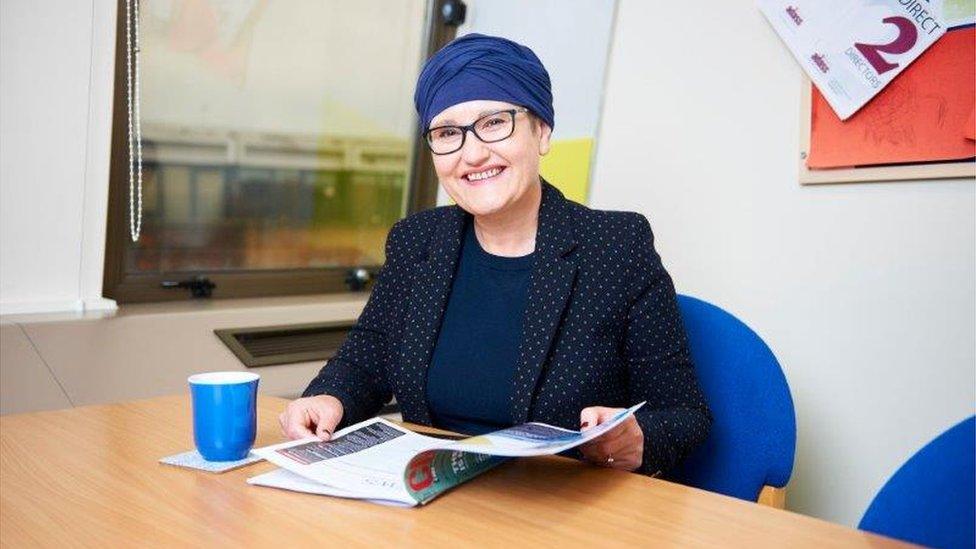
Debs Harkins said she had been running on adrenalin during the first six months of the outbreak
Debs Harkins took over as director of public health for Calderdale on 1 April after leaving the same role in Dudley.
"Calderdale had its first case about three weeks later than Dudley so it was helpful having been dealing for a few weeks with some of the issues," she said.
"I remember saying in meetings 'I feel like I'm visiting from the future'."
She said the first six to nine months in her new role had been powered by adrenalin, and saw her working up to 80 hours a week.
However, the 53-year-old said it was the summer of 2020 that was the hardest.
As infection rates rocketed in Calderdale, and the area was forced into local lockdown, she described it as "the worst time in my professional life".
However, Ms Harkins is used to fighting tough battles.
Five years ago she was diagnosed with leukaemia and at one stage was given just a 20% chance of survival.
But, she says her personal battle was in some ways easier than the fight against coronavirus.
"Those two things are definitely comparable, but I would actually say that this has been harder than the leukaemia," she said.
"The leukaemia was only about me and my family and this is about all the people of Calderdale.
"This is impacting on people's lives and education and work and people are losing loved ones, so in a way it's worse. It's gone on longer and it feels more of a challenge."

'You can't escape it'
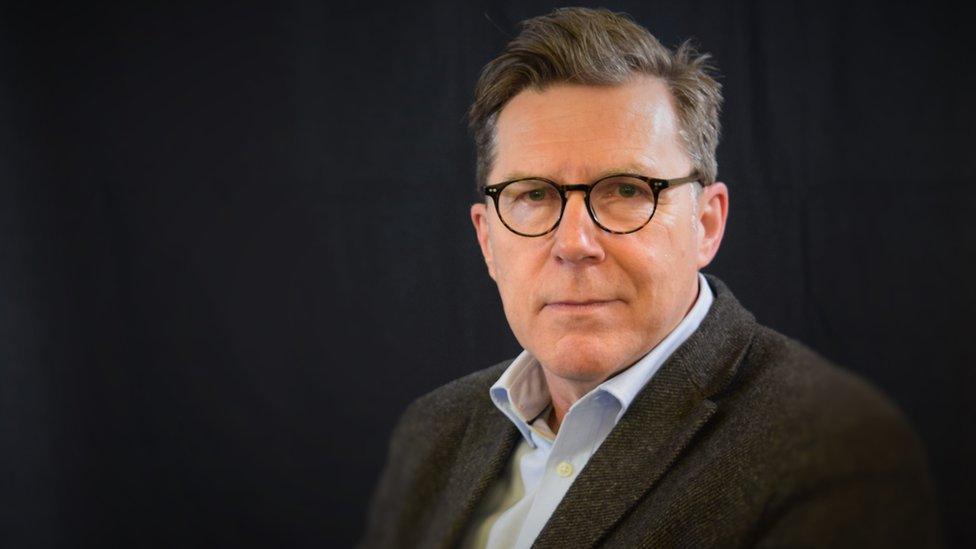
Stephen Pintus said the challenge of managing the pandemic had been "relentless"
Stephen Pintus, 59, has been the public health director for North East Lincolnshire since 2015 and in November took on the role for neighbouring North Lincolnshire.
Over a career spanning more than 30 years he has handled a variety of public health issues, including the 2009 Swine Flu outbreak, but nothing on the scale of Covid-19.
"It's been very eventful, very full on and a really strange experience," he said.
"The intensity of it all has fluctuated with the surges, but there's always been a background intensity."
Working from home, like so many people, he says he has almost missed his 140-mile daily commute as back-to-back online meetings mean days can seem "relentless".
Alongside the challenges of managing a pandemic he said can coping with the monotony had proved difficult.
"One of the beauties of being a director of public health is the variety of things you come across," he said.
"But this has been really quite singular, it's all around you, you can't escape it."
As the country moves towards the easing of lockdown restrictions that challenge is far from over.
Both North and North East Lincolnshire have seen infection rates rise in recent weeks and are now among the worst affected areas in England.
Mr Pintus said both areas had previously benefitted from the timings of national lockdowns but now face coming out of one with rates on the rise.
He warned that northern Lincolnshire may be in for a "bumpy ride" as a result, but with the knowledge gained over the past 12 months he and his team were better equipped to meet the challenge.
"We've seen it, we've been there, we've done it, we learn from that," he said.
"We've got that experience now to bring to bear, so we prepare, that's what we're doing now, we're getting ready," he said.

'I take it all personally'
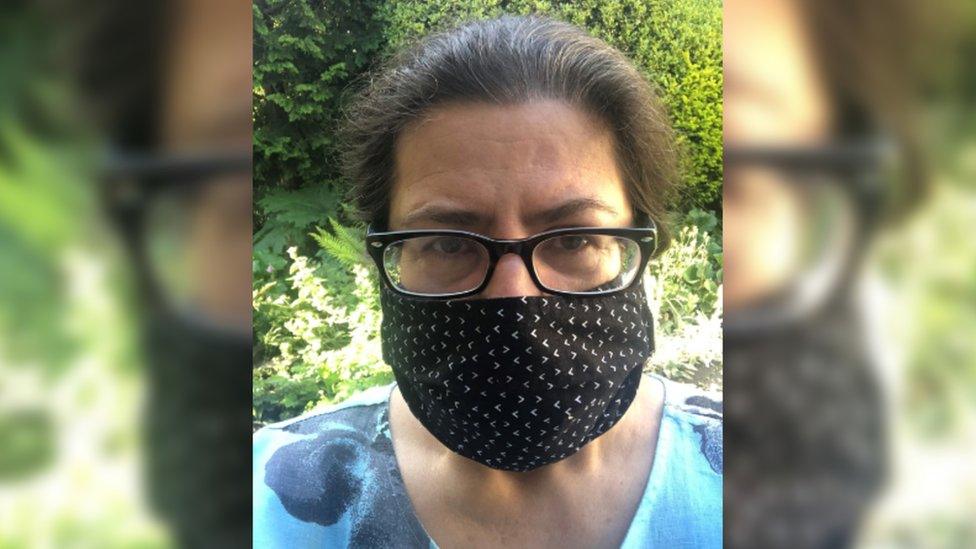
Julia Burrows has been volunteering at a vaccination centre in her spare time
Like her colleagues across the country, for Barnsley's director of public health Julia Burrows one word to describe the past year springs to mind immediately, "exhausting".
Prior to the pandemic the 58-year-old former nurse and midwife had been working on anti-smoking initiatives and projects to address mental health issues.
Since March, however, there has been just one all-consuming challenge, and in the week to 18 March the infection rate in the town was the highest in England at 195.7 per 100,000 people.
"The past 12 months have been like no other time in my career," she said.
"I look at the rate every single day in Barnsley and if it's gone up a bit, if it's high, it affects me, whereas I feel such relief when it's going down.
"I've been resilient, but there's no doubt, alongside everybody else, there are real low times and times when you feel more hopeful."
On top of her day job Ms Burrows has been volunteering at a vaccination centre in Barnsley but, despite the progress made on that front, said she is concerned people may try to rush the final stages of managing the pandemic.
"It feels a bit precarious at the moment, everyone talks about how we've got the light at the end of the tunnel and we absolutely have got that, but it's almost like a candle and if you run too fast towards it it will blow out," she said.
The reason Ms Burrows and her colleagues are so keen not to jeopardise the sacrifices made in the past year is their deep sense of belonging to the communities they speak for.
"I've worked in lots of different places, but working in Barnsley gets under your skin," she said.
"It's something that I think almost everyone I know who has come to work here says, that there's a sense of care about what happens.
"There's a real sense of wanting to do the right thing for Barnsley, so I take it all personally."

'A total privilege'
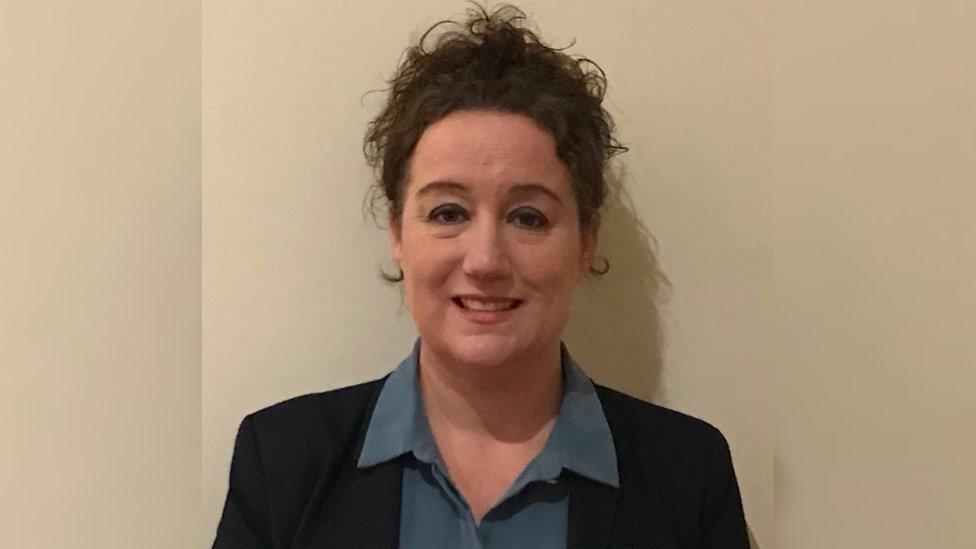
Louise Wallace said she felt "privileged" to lead North Yorkshire's fight against Covid-19
Louise Wallace, 46, took on the took on the role of director of public health for North Yorkshire in December 2020, shortly after England emerged from the second lockdown.
She described the past 12 months as an "unprecedented" challenge but one she had been proud to be a part of.
"Whilst it has been intense it's just a total privilege to be involved in the response across North Yorkshire," she said.
"I, like most people, have felt that range of emotion, from deep sadness to think about the over 1,100 people across North Yorkshire who have died, and their friends and family.
"I do feel that and think about that quite seriously because I'm sure there's a lot of grief and sadness out there.
"But, equally I've been humbled at how amazing people have been and how kind and supportive of each other.
"When you look at the community response, the volunteering, it has just been superb how people have tried to look after each other and long may that continue."
Over the past 12 months North Yorkshire has repeatedly been in the news as stories emerge of people breaking lockdown rules, from couples found camping on cliff edges to seemingly endless numbers of house parties in Scarborough.
Asked if she felt frustrated by the persistent breaches she replied: "Yes, but there's also a lot of people across North Yorkshire who have been doing the right thing and I want to acknowledge everything they have done to get the rates down. The vast majority of people are responsible."
Going forward she said it was important to move "carefully and cautiously" over the coming weeks and months but that she and her team, like directors of public health across England, "will do everything we possibly can" to mitigate the impact of the virus.